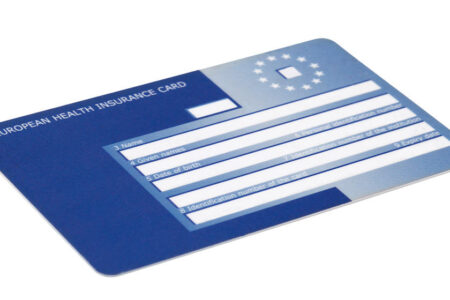Cyprus is a popular destination not only for tourists but also for those seeking residency permits. Holders of a Cypriot residency permit can use this status to travel both within and outside the European Union. However, the travel rules for Cypriot residency permit holders depend on various factors, such as the visa requirements of the destination country and the resident’s status. In this article, we will explore the key features of traveling with a Cypriot residency permit, visa-free destinations, and conditions for traveling to Schengen Area countries and beyond.
Contents
The Schengen Area and Cyprus: What You Need to Know
Although Cyprus is a member of the European Union, it is not part of the Schengen Area. This means that border checks remain between Cyprus and Schengen countries, and Cypriot residency permit holders cannot freely move within Schengen countries without a visa. However, for third-country nationals residing in Cyprus, the visa requirement for visiting Schengen countries is less complicated.
Cypriot residency permit holders need to obtain a Schengen visa to visit Schengen countries. This process is generally simplified for residents of Cyprus. Visa processing usually takes 10 to 15 days, and applicants must submit documents such as a passport, proof of financial means, hotel reservations, and return tickets.
Long-term Visa (Category D)
For those planning to stay longer in EU countries, a Category D visa, known as a “long-term visa,” may be required. This visa allows extended stays in EU countries for purposes such as studying, working, or other long-term activities. Obtaining this visa grants the right to stay longer than typical tourist visits.
Travel to Bulgaria and Romania
One of the advantages of holding a Cypriot residency permit is the ability to visit Bulgaria and Romania without a visa. According to EU Decision No. 565/2014, holders of Cypriot residency permits can enter these countries for up to 90 days within any 180-day period. These countries are not part of the Schengen Area, so special conditions for Cypriot residency permit holders remain in effect.
It is important to note that as of March 31, 2024, Bulgaria and Romania have partially joined the Schengen Area for air and sea routes. However, for land travel, special rules remain, allowing Cypriot residency permit holders to continue traveling visa-free during the transitional period.
Travel to Croatia
As of January 1, 2023, Croatia became a full member of the Schengen Area, changing the rules for Cypriot residency permit holders. Previously, as with Bulgaria and Romania, residency permit holders could visit Croatia without a visa, but now a Schengen visa is required to travel to this country. This rule applies to all third-country nationals, including holders of Cypriot residency permits.
Travel Beyond the EU
A Cypriot residency permit opens up visa-free travel opportunities not only within Europe but also to some countries outside of it. Certain countries offer visa-on-arrival or electronic entry permits for residents of EU countries. For example, Thailand, Jordan, and Indonesia allow visa-on-arrival for travelers. However, documents such as proof of purpose of travel, financial means, return tickets, and hotel reservations are often required.
The list of countries offering visa-on-arrival or e-visas may change, so it is important to check the requirements before each trip. Some countries may require special entry permits, especially for third-country nationals, even if they hold residency permits in an EU country.
Important Details and Tips for Travelers
- Length of Stay: In many countries, the stay for residency permit holders is limited to 90 days within a 180-day period. This means that if you spend more than 90 days in any one country or cumulatively in Schengen Area countries, you will need to apply for a long-term visa or leave the area for the remaining period.
- Document Check: While traveling, it is crucial to always carry not only your passport and visa (if required), but also documents that confirm your residency status in Cyprus. This could be your residency permit or another document proving your right to reside in Cyprus.
- Electronic Visas and Visas on Arrival: Before traveling, always check which countries offer the option to obtain a visa on arrival or an electronic entry permit. It is important to ensure you have all the necessary documents to avoid issues at the border.
- Exit Rules from Cyprus: To maintain your Cypriot residency permit, you should not leave the country for more than three consecutive months. If you are planning long trips or stays abroad, it is essential to consider this rule to avoid losing your residency status.
Traveling with a Cypriot residency permit offers many opportunities to visit various countries, but it requires careful attention to visa requirements. Residency permit holders can travel visa-free to Bulgaria and Romania, but a Schengen visa is required for travel to the Schengen Area. A Category D visa may be needed for long-term stays in the EU. When planning trips outside the EU, it is important to familiarize yourself with the visa requirements of each country in advance to ensure a smooth journey.
















